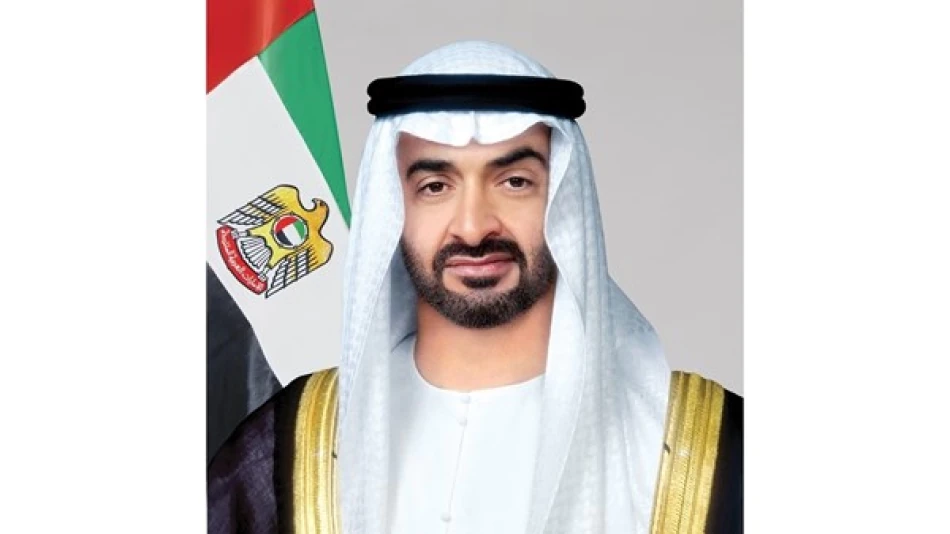
UAE President and French President Discuss Bilateral Ties and Regional Developments in Phone Call
UAE and France Unite Against Israeli Aggression on Qatar, Push Two-State Solution
UAE President Sheikh Mohammed bin Zayed Al Nahyan and French President Emmanuel Macron have jointly condemned recent Israeli attacks on Qatari territory, marking a significant diplomatic alignment between two key Western allies in their opposition to Israel's expanding regional operations. The leaders emphasized their commitment to the two-state solution while rejecting any Israeli annexation attempts in the West Bank.
Strategic Partnership Reinforced Through Crisis
The phone call between the two leaders underscores how regional conflicts are strengthening ties between the UAE and France, both of whom have positioned themselves as moderate voices seeking stability in the Middle East. This diplomatic coordination comes at a time when traditional alliances are being tested by Israel's increasingly aggressive military posture across multiple fronts.
The UAE's willingness to publicly condemn Israeli actions represents a notable shift from its previous diplomatic restraint following the Abraham Accords. This suggests that even nations that have normalized relations with Israel are drawing red lines when it comes to attacks on fellow Arab states.
Qatar Attack: A Dangerous Escalation
The Israeli aggression on Qatari territory marks a concerning expansion of military operations beyond the traditional Palestinian territories and Lebanon. Qatar, a major global energy supplier and host to the largest U.S. military base in the Middle East, represents a significant escalation target that could have far-reaching economic and geopolitical consequences.
Regional Security Implications
Both leaders emphasized that the attack constitutes a violation of Qatar's sovereignty and threatens regional security. This assessment carries particular weight given Qatar's role as a crucial mediator in Middle Eastern conflicts and its hosting of various diplomatic initiatives, including Taliban negotiations and Hamas leadership.
Two-State Solution: Last Stand for Diplomacy
The leaders' renewed emphasis on the two-state solution comes as this diplomatic framework faces its greatest existential threat in decades. Their joint rejection of West Bank annexation attempts and Palestinian displacement reflects growing international concern that Israel's current trajectory could permanently eliminate the possibility of a Palestinian state.
International Law vs. Ground Reality
The reference to international legitimacy and UN resolutions highlights the growing gap between established international law and the evolving situation on the ground. Both France and the UAE are positioning themselves as defenders of the international order at a time when multilateral institutions face increasing challenges.
Economic and Strategic Calculations
For the UAE, this stance balances its Abraham Accords commitments with its broader Arab identity and regional leadership aspirations. The country cannot afford to appear disconnected from Arab solidarity, particularly as it seeks to maintain its position as a regional hub for business and diplomacy.
France's involvement reflects its historical Middle Eastern interests and its attempt to maintain European relevance in a region increasingly dominated by U.S. and regional power dynamics. Macron's coordination with Gulf allies strengthens France's position as an alternative Western partner to the United States.
Broader Implications for Regional Order
This diplomatic alignment suggests that Israel's expanding military operations may be creating unintended consequences in terms of regional coalition-building against its actions. The fact that both a Gulf Arab state and a major European power are coordinating their opposition indicates that Israel's current approach may be isolating it from potential allies and moderate voices in the region.
The emphasis on preventing Palestinian displacement also reflects concerns that current conflicts could trigger refugee crises that would destabilize neighboring countries and create long-term regional challenges beyond the immediate military objectives.
Most Viewed News

 Layla Al Mansoori
Layla Al Mansoori






